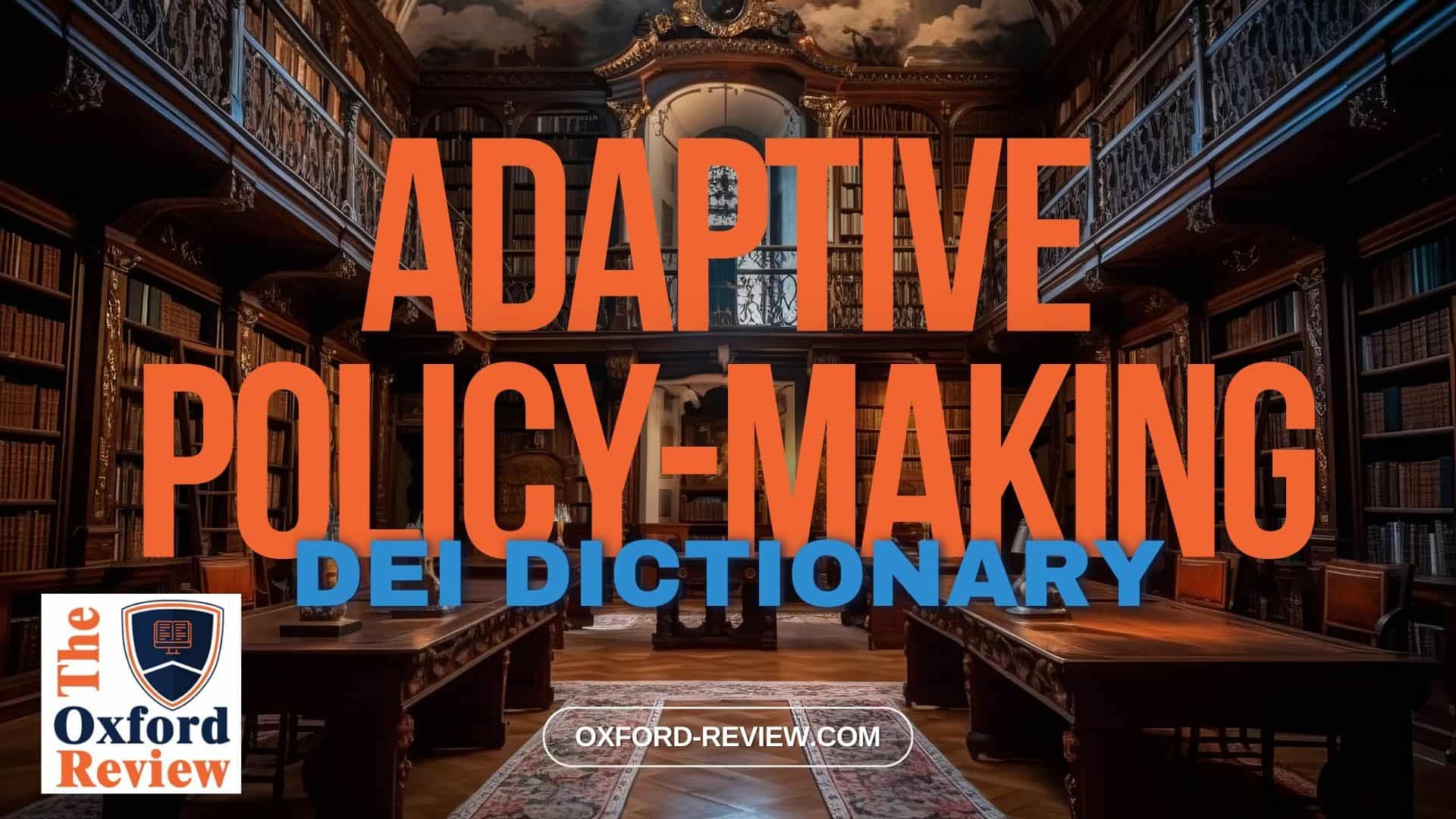Adaptive Policy-Making – Definition and Explanation

Understanding Adaptive Policy-Making in DEI: Strategies and Examples
In the dynamic landscape of Diversity, Equity, and Inclusion (DEI), organisations are increasingly adopting adaptive policy-making strategies to address the evolving needs of diverse communities. Adaptive policy-making refers to a flexible approach where policies are continuously reviewed, refined, and adjusted based on feedback, data, and changing circumstances.
Definition:
Adaptive policy-making involves a proactive and iterative process that emphasises learning and adaptation. Unlike traditional static policies, adaptive policies are designed to be responsive to emerging challenges and opportunities within the DEI framework. This approach acknowledges the complexity of social issues and aims to foster inclusivity by incorporating diverse perspectives into policy development and implementation.
Key Components of Adaptive Policy-Making:
- Continuous Evaluation: Adaptive policy-making relies on ongoing evaluation and feedback mechanisms to assess the impact and effectiveness of policies. This may involve collecting data, conducting surveys, and soliciting input from stakeholders to inform decision-making.
- Flexibility and Agility: Unlike rigid policies, adaptive policies are designed to be flexible and agile, allowing for adjustments in response to changing circumstances or new insights. This flexibility enables organisations to address emerging DEI issues promptly.
- Collaborative Approach: Collaboration is fundamental to adaptive policy-making, as it encourages engagement with diverse stakeholders, including community members, employees, and experts from various backgrounds. By involving stakeholders in the policy-making process, organisations can gain valuable insights and build consensus around DEI initiatives.
- Learning Culture: Adaptive policy-making fosters a culture of learning and experimentation, where organisations are open to trying new approaches and learning from both successes and failures. This iterative process enables continuous improvement and innovation in DEI strategies.
Example:
Consider a multinational corporation committed to fostering diversity and inclusion in its workforce. In response to employee feedback and evolving industry trends, the company implements a flexible remote work policy that allows employees to choose their preferred working location, whether in the office or remotely. The policy is accompanied by regular surveys and feedback sessions to assess its impact on employee well-being, productivity, and inclusivity. Based on the feedback received, the company iterates on the policy, making adjustments such as offering additional resources for remote workers and scheduling inclusive virtual events to foster connection among team members. By adopting an adaptive policy-making approach, the company demonstrates its commitment to accommodating diverse needs and creating an inclusive work environment.
Conclusion:
Adaptive policy-making plays a crucial role in advancing DEI objectives by promoting flexibility, inclusivity, and responsiveness to changing societal dynamics. By embracing this approach, organisations can adapt more effectively to the evolving needs of diverse communities and drive meaningful progress towards building a more equitable and inclusive society. As the DEI landscape continues to evolve, embracing adaptive policy-making principles will be essential for organisations seeking to create lasting positive change.
References:
Walker, W. E., Rahman, S. A., & Cave, J. (2001). Adaptive policies, policy analysis, and policy-making. European journal of operational Research, 128(2), 282-289. https://www.sciencedirect.com/science/article/abs/pii/S0377221700000710
Innes, J. E., Connick, S., Kaplan, L., & Booher, D. E. (2006). Collaborative governance in the CALFED program: Adaptive policy making for California water. https://escholarship.org/uc/item/48p87363
Furlan, E., Torresan, S., Ronco, P., Critto, A., Breil, M., Kontogianni, A., … & Marcomini, A. (2018). Tools and methods to support adaptive policy making in marine areas: Review and implementation of the Adaptive Marine Policy Toolbox. Ocean & coastal management, 151, 25-35. https://www.sciencedirect.com/science/article/abs/pii/S096456911730577X
Be impressively well informed

Get the very latest research intelligence briefings, video research briefings, infographics and more sent direct to you as they are published
Be the most impressively well-informed and up-to-date person around...
